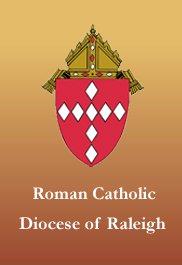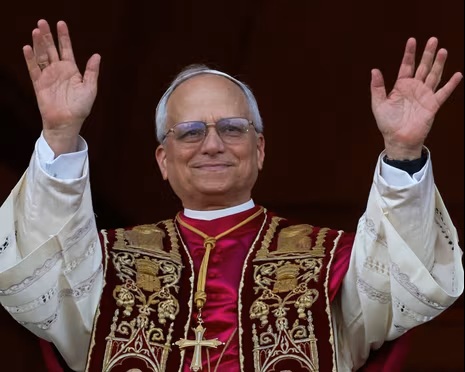Why Are Christians at the Forefront of Hong Kong’s Protests Against Extradition Law?
A very visible aspect of the ongoing protests in Hong Kong against the new extradition law the government of China is seeking to impose is the protests’ Christian dimension.
To gain greater insight into why Catholic and Protestant Christians are playing such an important role in the fight against the law, which would authorize the extradition of Hong Kong residents to communist-governed mainland China, the Register spoke June 21 with China expert Father Bernardo Cervellera, who is the editor of Asia News, a Catholic press agency operated by the Pontifical Institute for Foreign Missions.
What has been Christians’ historic role in Hong Kong politics, and how has that changed since the handover to China?
The Christians’ role on the territory of Hong Kong has always been very important because the British government of Hong Kong used to delegate a lot of issues connected to the youth to the Catholic Diocese of Hong Kong and the Protestant communities, entrusting to them a lot of schools, kindergartens and colleges. The government used to pay for this Christian staff and allowed Christian sponsors to run the educational project. This allowed the education of many people that became sensitive to Christian and human values, to social collaboration, solidarity and so on. The British government, in a way, was quite happy with that because the Christians did not cause any trouble to the society. On the contrary, they were highly creative, even in business, or in the initiatives for the poorest. It was the case, for instance, for the hundreds of thousands of refugees coming from the Peoples’ Republic of China in the 1950s, through Caritas notably, which took care of them, healed them and provided them with an education.
The Christian education also strengthened a sensitivity to freedom, the freedom of the human person and to human rights, to democracy. So, when the Tiananmen Square Massacre happened in 1989 [in Beijing], in Hong Kong people that already fled communist China’s persecution strived to give support to the dissidents of China. Hong Kong became, for a period of time, the way by which many people could escape China to join the free world.
The Catholics and the Christians, more generally, gave a huge contribution to democracy and to the handover process, helping find conditions and boundaries. But we must specify that such a handover happened without the Hong Kong people’s consent. The decision was taken between the British and Chinese governments. Hong Kong was the only colony that was handed over to the mother country without any form of public consultation like plebiscite or referendum. The population of Hong Kong wanted total democracy, but the Chinese government only granted an appearance of democracy. Currently, half of the Hong Kong congressmen are elected by the citizens. The other half is co-opted and appointed by the highest Chinese authorities. The head of the executive in Hong Kong is appointed by an electoral committee, not by the citizens. And the candidates must get the prior approval of Beijing. So we could say that it is just a mock democracy.
Why did the extradition bill provoke a strong response from Christians?
The Catholics and the Christian communities were at the forefront of the protest to ask for the withdrawal of the extradition bill, for the philosophical reasons mentioned above, just as in the time of “Occupy Central With Love and Peace,” asking for more democracy and the establishment of a universal suffrage.
This bill provides for the extradition of people suspected of being criminals to China. The problem is that China doesn’t have a decent judicial system: Indeed, it responds to the [Communist] Party’s requirements. It means that the Hong Kong government would have to send all the dissidents that are in or go through Hong Kong back to China, and it would be a huge offense to human rights and to free speech, a freedom that still exists in Hong Kong.
Considering the fact that many Christians help both the official and unofficial Church, the “underground Church,” they would be directly accused of being suspected criminals and extradited to China and prosecuted.
For all these reasons, the Christian communities, as well as lawyers, entrepreneurs, artists, publishers or journalists, are against such a law.
Cardinal Joseph Zen was one of the first to speak out against the extradition law. What did he say?
Cardinal Zen expressed himself through the social media and through a short post on his blog, saying that, in 2019, he has become a fugitive. Given the fact that he is very critical towards China’s policy regarding religious freedom, the Chinese government could ask Hong Kong to extradite him as well and try him. Therefore, it is a huge issue.
Cardinal John Tong of Hong Kong asked Carrie Lam, the chief executive of Hong Kong, to withdraw the extradition bill and launch an investigation into the police’s handling of the protests. What has been the government’s response?
At the beginning, Cardinal Tong was more discreet than Cardinal Zen, but he signed a joint statement with the chairman of the Hong Kong Christian Council, Eric So, asking for the withdrawal of the bill. The first document published by the diocese only asked for the suspension of this bill. But in the face of the huge waves of popular protests, Cardinal Tong hardened his position.
But the government hasn’t answered yet. From the time of Occupy Central With Love and Peace, the Hong Kong government has been trying at any cost to break the backs of young people that are more and more losing patience.
How has Catholic social teaching been used to frame protesters’ goals and demands?
The diocesan committee Justice and Peace has been organizing various meetings since April in the parishes, highlighting the social doctrine of the Church that affirms human rights as well as the rights of the human person, and legitimizes criticism against the political power so long as it suppresses such rights. And it is completely new with respect to the traditional Chinese and Confucian mentality that sees political power as being always right. According to such a mentality, the submitted people must always obey to the political power.
What kind of practical and logistical assistance have Christian/Catholic churches provided to protesters?
It is, above all, an ideal: the ideal of a defense of democracy, of human rights, which are an ideal the Christians have always supported. Without a religious dimension, it is impossible to build a foundation for these values. In the churches of Hong Kong, many meetings are organized to give support to this kind of mission, to express closeness to the population, to talk with young people. These meetings are meant to concretely support the protesters’ views.
What has been the role of Christian prayer groups?
These groups of prayer hit the headlines with their Hallelujah to the Lord during the demonstrations. The protesters decided to sing that song because the police were saying the demonstrations were a kind of riot, which was not true at all. But the songs reveal a religious symbol, which doesn’t require any approval from the police.
All in all, there is a conflict between the emergency for human rights — which has gathered 2 million citizens, which is more than one-fifth of the population, almost one-fourth of the population — and the police that refuse such a popular movement.



